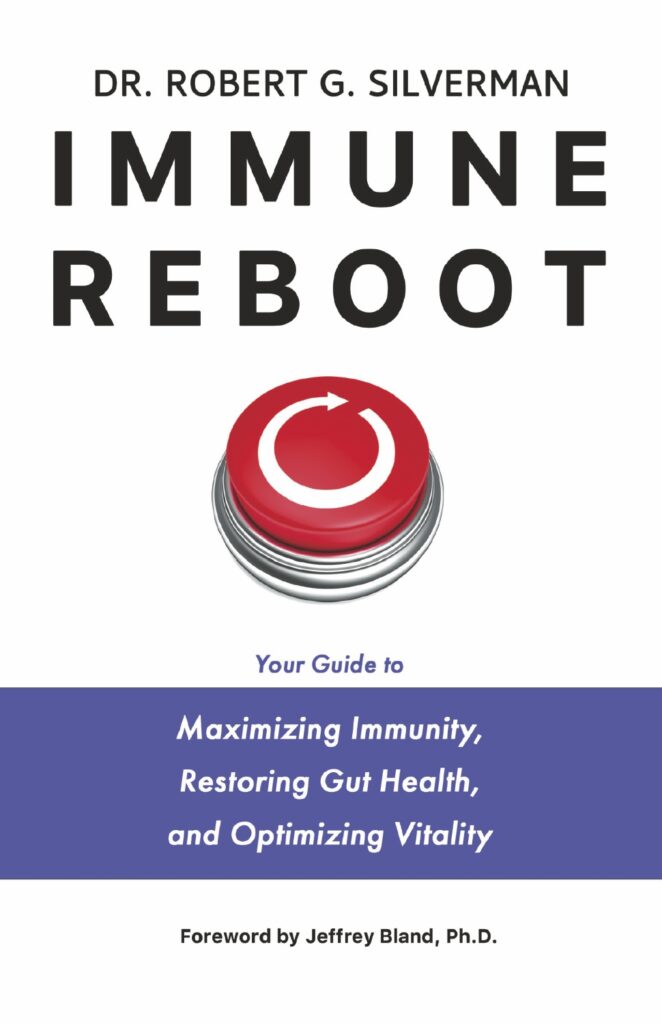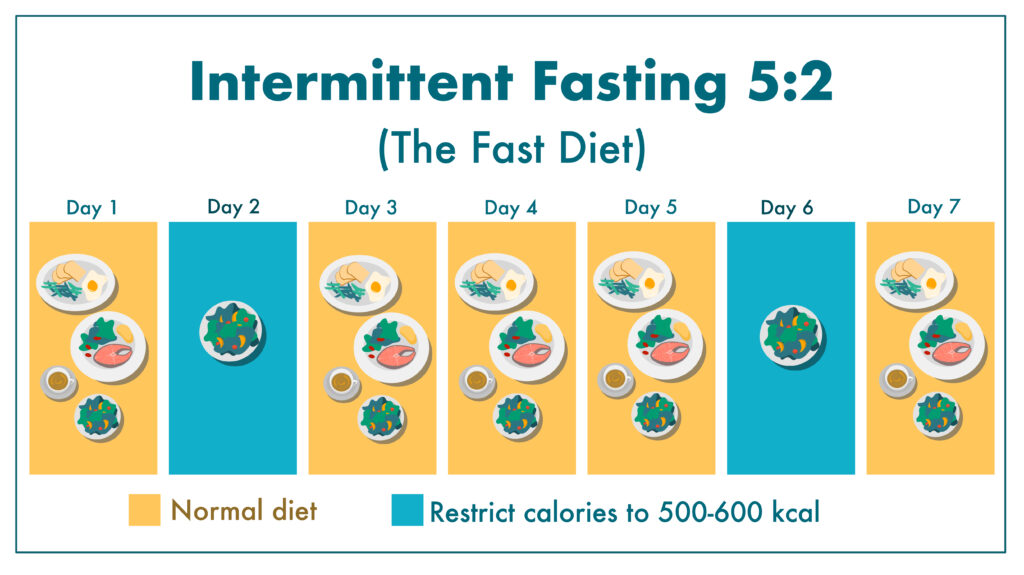
The following article is excerpted and adapted from the new book, Immune Reboot: Your Guide to Maximizing Immunity, Restoring Gut Health, and Optimizing Vitality.
When the body is dealing with chronic disease or low-level systemic inflammation, the immune system becomes dysregulated. It becomes imbalanced, and clogged with old white blood cells that aren’t functioning well.
In this situation, boosting the immune system—a very popular trend these days– may not be the best strategy for restoring health. The use of “immune boosting” supplements to amplify certain aspects of an immune system that is already imbalanced and over-extended will only perpetuate the dysfunction.
Rather than “boosting” the system, a better goal is to reset and rejuvenate it, and to replace worn-out immune cells with new ones to improve immune resilience.
Fasting & Autophagy
Fasting is a well-known method for stimulating the removal of old immune cells, producing new ones, and resetting the immune system. Fasting triggers the process called autophagy—a break down and removal of damaged or dysfunctional white blood cells, including those misdirected against the body’s own tissue (autoimmunity).

Autophagy is particularly effective in destroying immunosenescent cells which are responsible for the alteration of immune functions due to aging.
Intermittent fasting—a meal schedule that alternates between normal eating patterns and brief but frequent full fasts (or restricted caloric intake)—is an effective method for increasing the rate of autophagy. There are several different approaches to this, including alternate-day fasting and daily time-restricted eating.
Regardless of the method chosen, the principle is similar: during periods of calorie restriction, the body removes senescent leukocytes and replace them with newly generated cells, which in turn reduces the overall amount of inflammation in the body.
Eating again following a brief fast will stimulate stem cells to generate new leukocytes, a discovery for which Japanese cell biologist, Yoshinori Ohsumi, won the 2016 Nobel Prize in physiology or medicine.
Within cells, a similar process of removal and replacement occurs with the mitochondria. At that level, fasting triggers a different type of autophagy called mitophagy, where old, damaged, dysfunctional mitochondria are broken down and removed, allowing the remaining mitochondria to function better. At the same time, mitophagy helps reduce the production of undesirable inflammatory cytokines from the cell.
Intermittent fasting can take several forms, and it is a matter of personal preference which one works best for a given. Some people follow alternate-day fasting, a cycle of fasting on one day, and eating normally on the next. Others prefer the “5:2 Diet,” with five days per week of unrestricted eating and two non-consecutive days in which one eats only one meal, restricted to 500 to 700 calories.

Still others prefer variations on time-restricted eating, where one limits one’s eating to a relatively short daytime window, after fasting for at least 12 hours overnight. The fasting-mimicking diet, pioneered by Valter Longo, Ph.D., is a periodic, multi-day diet that restricts calories but is high in unsaturated fats.
For many people, intermittent fasting is most easily accomplished by avoiding caloric consumption for at least 12 hours (preferably for 14 to 16 hours) after the evening meal. In my experience, aiming for a 14:10 eating pattern works well for many people. This means fasting for 14 hours between the evening meal and the first meal the next day.
It’s OK to drink unsweetened clear liquids such as water, tea, herbal tea, and coffee while fasting. During the 10-hour eating windows, I advise my patients to follow a health-oriented, plant-forward diet.
Daily intermittent fasting like this enhances mitophagy and improves mitochondrial function. The mechanisms behind this are still being explored. We know, however, that the process involves several transcription factors that promote mitochondrial biogenesis. One example is nuclear factor 2 (NRF2), which regulates mitochondrial production of reactive oxygen species. Fasting may enhance the production of NRF2 and improve the expression of antioxidant regulatory genes.
A Role for Spermidine
The value of intermittent fasting for immune rejuvenation through autophagy may be enhanced by supplementing with spermidine–a polyamine that induces autophagy through the TOR kinase pathway. Spermidine mimics the action of caloric restriction on the body.
While not a substitute for intermittent fasting, spermidine supplements are particularly valuable for maintaining the rejuvenation effect during times when fasting periods must be shorter than usual.
Improving Metabolism

The benefits of intermittent fasting for rejuvenating the immune system and improving mitochondrial function are clear. In addition, it also reduces inflammation and improves insulin sensitivity. Many people find that intermittent fasting helps them lose weight by losing body fat, not muscle.
The reality is, most Americans eat half or more of their daily calories by snacking on low-nutrient processed foods (aka junk food) after dinner. I strongly advise patients to avoid this damaging eating pattern by fasting for 14 hours or longer.
In refraining from adding to their blood sugar during the fasting period, people can activate their bodies’ ability to use existing blood sugar for energy, so there’s little left over to be stored as fat. In some cases, the body will dip into its hepatic glycogen reserve overnight.
Being overweight or obese strains the immune system by causing inflammation. Intermittent fasting helps with weight loss, which in turn helps relieve the stress on the immune system and makes rejuvenation even more effective. It’s a virtuous circle that can greatly improve immune health.
Critical Nutrients for Immunity
A well-balanced diet that emphasizes plants, high-quality protein, and good fats, will lay the macronutrient foundation for strong immunity. But even with a good basic diet, many people run low on some essential minerals, particularly if they’re battling a chronic illness or long-term inflammation.
High levels of critical nutrients are essential for maintaining a healthy immune system and rejuvenating it through fasting. Good nutrition is also essential for efficiently producing ATP within the mitochondria. B vitamins, iron, magnesium, selenium, and zinc are all crucial for peak immunity.
B Vitamins: The B vitamins thiamine, riboflavin, and niacin are essential, as is the closely related alpha-lipoic acid, along with amino acids such as carnitine, cysteine, and coenzyme Q10 (ubiquinone or CoQ10).
Iron is crucial for an effective immune system. Low serum iron is a common response to infection. It’s the body’s way of slowing the progress of the infection by keeping microbes from accessing the iron they need to reproduce and spread.
But immune system cells need iron to support their metabolism. When iron is scarce, the mitochondria in immune cells can’t generate enough energy. They become less effective at fighting infection and generating immune memory to fight future infections.
Iron deficiency is one of the most common micronutrient deficiencies worldwide, particularly among pregnant women, the elderly, and hospitalized patients. Iron supplements can raise low serum iron levels and help maintain a healthy balance between enough iron to support immune system cells while also limiting the iron supply to pathogens.
Magnesium is essential for hundreds of enzymatic processes in the body. In the immune system, it is vital for forming many coenzymes and cofactors needed for the complex signaling within and among white blood cells, and for developing antibodies.
Most Americans are magnesium-deficient. Low magnesium can contribute to development of a cytokine storm, a severe immune reaction to an infection in which the body releases too many cytokines into the blood too quickly, and may also contribute to autoimmunity.
Magnesium is also needed to produce the enzymes that metabolize vitamin D. Consequently, magnesium deficiency will reduce the effectiveness of the vitamin D supplements someone may be taking.
Selenium is an essential micronutrient that has a crucial role in optimal immune responsiveness. It is a potent antioxidant that helps lower oxidative stress and reduce inflammation, ultimately enhancing immunity. Selenium deficiency leads to less robust immune responses to viruses and bacteria.
Zinc: Although zinc is considered a trace mineral for dietary purposes, large quantities are essential for the immune system. Some researchers even call it the gatekeeper of immune function, given its importance in cytokine signaling and for mobilizing the cells of the adaptive immune system. Low zinc levels are known to increase susceptibility to viral infection.
Zinc is necessary for maintaining the integrity of the pulmonary and intestinal mucosal barriers. It’s also essential for proper function of the pathways that trigger T cell and B cell proliferation in response to infection.
As a co-factor for many enzymes involved in immune cell function, zinc also plays a role in balancing pro- and anti-inflammatory immune processes.
END
Robert G. Silverman, DC, DACBN, DCBCN, is a chiropractic doctor, clinical nutritionist, national/international speaker, and author of Amazon’s #1 bestseller Inside-Out Health. He is the founder and CEO of Westchester Integrative Health Center. Dr. Silverman graduated magna cum laude from the University of Bridgeport College of Chiropractic, and also holds a Master of Science in human nutrition. The ACA Sports Council named Dr. Silverman “Sports Chiropractor of the Year” in 2015. He is on the advisory board for the Functional Medicine University, and is a seasoned health and wellness expert on the conference circuit. He is a frequently published author in peer-reviewed journals and other mainstream publications. His new book, Immune Reboot: Your Guide to Maximizing Immunity, Restoring Gut Health, and Optimizing Vitality, was released in December 2022.







